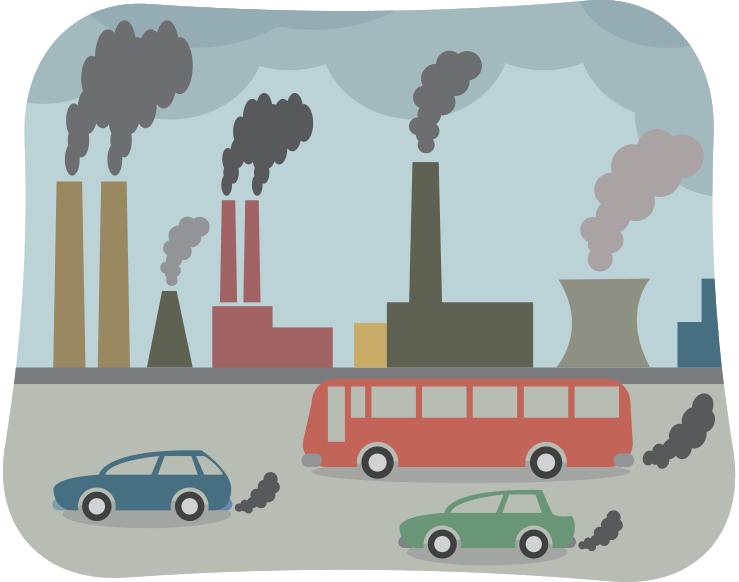How does air pollution affect the ordinary person? Air pollution occurs because of contaminants in the atmosphere. For example, vehicle emissions, fuel oils, fumes from chemical production, and smoke. A large percentage of pollution is emitted from human activities and human output. Air pollution is not only harmful to the environment, it also negatively affects all living things. The most evident international pollutant is smoke. Throughout the centuries, coal has caused cities to have dense air quality due to the smoke emission.
Small particulate air pollution is composed of pollutants less than 10 microns in diameter (Blanchfield). These small particles can cause early death among people suffering from heart and lung disease (Blanchfield). The most prominent sources of air pollution have been the combustion processes (Blanchfield). Sulfur(S) and nitrogen oxides(NOx) have begun to cause concern to the environment due to the worldwide use of fossil fuels (Blanchfield). The mixture of sulfur dioxide(SO2) and smoke caused foggy streets in Victorian London (Blanchfield).
Smoke has always been a major concern, ever since the ancient Roman empire. In cities that rely on burning coal, the smoke pollution has grown in the last few years. Some examples of these cities are Ankara, Turkey, and Shanghai, China. At steel plants, coal is used to fuel blast furnaces, carbon dioxide is a waste product of this process. Seven percent of global greenhouse gas emissions account for the making of steel (Blanchfield).
Many health problems can be caused or worsened due to urban air pollutants. For example, bronchial disease is enhanced due to the polluted atmosphere filled with smoke and sulfur dioxide (Blanchfield). One of the effects of smog is eye irritation from the pollutant peroxyacetyl nitrate(PAN) (Blanchfield). In high-traffic areas with increased automobile pollution, the heart has to work harder to make up for the oxygen being replaced by carbon monoxide (Blanchfield). Some concern is that small particle air pollutants can cause or worsen asthma, especially in younger children.
According to the World Health Organization, the effects of indoor and outdoor air pollution are associated with seven million deaths annually. Air pollution, in recent years, has contributed to one in ten deaths globally (Ritchie and Roser). Bad air quality also harms the quality of life of air-breathing creatures. In low and middle-income countries there tends to be a greater burden of air pollution (as shown on the map below). These low-income countries tend to rely on solid fuels for cooking which contributes to the air quality (Ritchie and Roser).
Due to improvements in indoor air quality, there has been an impressive decline in death rates from indoor air pollution (Ritchie and Roser). The earth’s climate and ecosystems are linked to the air quality. Fine particle matter found in outdoor air pollution has been shown to
cause strokes, heart diseases, lung cancer, and acute and chronic respiratory diseases (Eisele). Around 2.4 billion people are exposed to dangerous levels of indoor pollution due to fires, stoves fueled by kerosene, feces, crop waste, and coal burning (Eisele). Some lifestyle chan
The effects of air pollution, cause concern for the environment and the human population. It contributes to respiratory diseases, heart conditions, and a shortened lifespan. Pollutants can upset the balance of various ecosystems. Additionally, pollutants like greenhouse gases contribute to global warming, leading to extreme weather events and altering climate patterns. To ensure a healthier planet for future generations, it is crucial to tackle air pollution through regulations, cleaner energy sources, and human contributions to change their lifestyles to decrease air pollutants.



